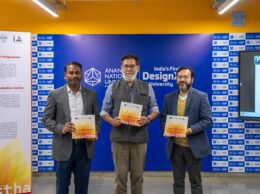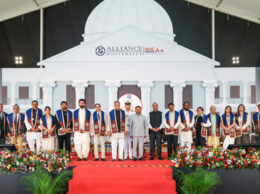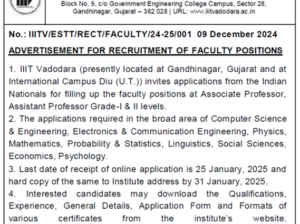New Delhi: Science and technological innovation has profound impact on socio-eco-political environment of any nation. India has achieved many milestones in the Science and technology field since independence. Be the indelible ink that has been worn by millions of fingernails since the first general election in 1952 or the country’s first parallel supercomputer in the late 80s, or an anti-malarial drug, the force behind these invention is the Council of Scientific & Industrial Research (CSIR). The CSIF has come a long way in seven decades of its existence while the nation’s research & development (R&D) body is gearing up to kick start its Platinum Jubilee celebrations on 26 September 2016 (Monday).
Whether it was a Swaraj tractor or a mini tractor ‘Krishi Shakti’ for small farmers, or an anti-malarial drug, the imprint of CSIR has been there all along. In its journey along knowledge-driven and Science and Technology-led path towards inclusive growth, CSIR has come out with technology-based solutions that have also benefitted the less privileged and vulnerable sections of the society.
In the field of medicine and health care CSIR altered the paradigm by introducing process technologies, which facilitated development of generic drugs on one hand and unraveling of human genome on the other. CSIR has launched an anti-diabetic herbal formulation, namely, BGR-34 from a combination of natural extracts derived from six plant species mentioned in ancient Ayurveda texts. After extensive tests, BGR-34 stands approved by the Ministry of AYUSH.
CSIR has developed a portfolio of Streptokinase technology, a vital, life-saver injectable protein cardiovascular drug. Natural and recombinant streptokinase developed by CSIR are already in the market. It has now developed new generation of clot-busters comprising clinically beneficial thrombolytic molecules with enhanced half-lives so that lower doses can be given in a single-shot bolus as well as target (fibrin/clot) specificity.
As high levels of milk contamination came to notice, CSIR developed a system, Ksheer-Scanner which detects adulteration of milk by the use of urea, salt, detergent, liquid soap, boric acid. About 40 such systems have already been installed.
In high-end technology area, CSIR has contributed to space program as well as contributed significantly for the light combat aircraft, Tejas. CSIR has installed Drishti systems at Delhi’s busy IGI Airport for providing information to pilots on visibility for safe landing and take-off operations. In collaboration with the India Meteorological Department (IMD), CSIR will jointly produce 70 Drishti systems some of which are already deployed at the country’s five major airports.
In some cases, it has led the industry as in the leather sector while in some it has worked to create a new industry, as in civil aviation sector. At times, CSIR technology interventions helped in creating jobs as in the country’s menthol mint success story, wherein India became a global leader in menthol mint production mainly due to CSIR sustained efforts in developing high-yielding varieties. At the same time, CSIR technological interventions have helped in saving jobs – during the 1990s when the leather industry was facing a storm and the Courts had ordered 700 highly polluting tanneries to close down. CSIR stepped in and 270 closed tanneries were revived and over two lakh jobs were saved.
CSIR has always responded to the needs of the time, lending a helping hand in the ‘Green Revolution’ and laying the foundation of Indian agrochemicals industry.
CSIR’s contribution towards making India as IT power is remarkable. In the 1980s, India was starved of computer power, as the supercomputer was not sold to India. CSIR took the initiative to get the country its first supercomputing power in the form of first parallel computer built in 1986. Catalysts that are at the heart of a trillion dollar industry had been a fiercely protected sector till 1990s. However, CSIR successful reversed the technology transfer process, as the cheaper, safer, longer lasting catalyst technology was transferred out of India to multinationals.
CSIR, in association with the Engineers India Ltd (EIL) had won international competition when an industrial plant based on indigenously developed wax de-oiling technology was set up at Numaligarh Refinery Ltd (NRL) in the north-east. The plant was recently dedicated to the nation by the Prime Minister.
Today CSIR also provides S&T based services to industry and other stakeholders, acts as custodian for primary standards of measurements, bio-resources, and traditional knowledge, is the nation’s flag bearer in intellectual property generation, and protection and builds the country’s largest S&T human resource.
Established in 1942, CSIR is an autonomous society which is presided over by the Prime Minister. An ensemble of 38 state-of-the-art institutes, today, CSIR is amongst the foremost scientific and industrial research organizations in the world. According to the latest Scimago Institutions ranking, CSIR is the only government organization to have figured among the top 100 global institutions; ranked 12th in the world among the government institutions in the world.
As it enters its 75th year of its foundation, CSIR’s year-long Platinum Jubilee celebrations would be inaugurated by the Prime Minister Mr Narendra Modi on 26 September 2016 in New Delhi.









